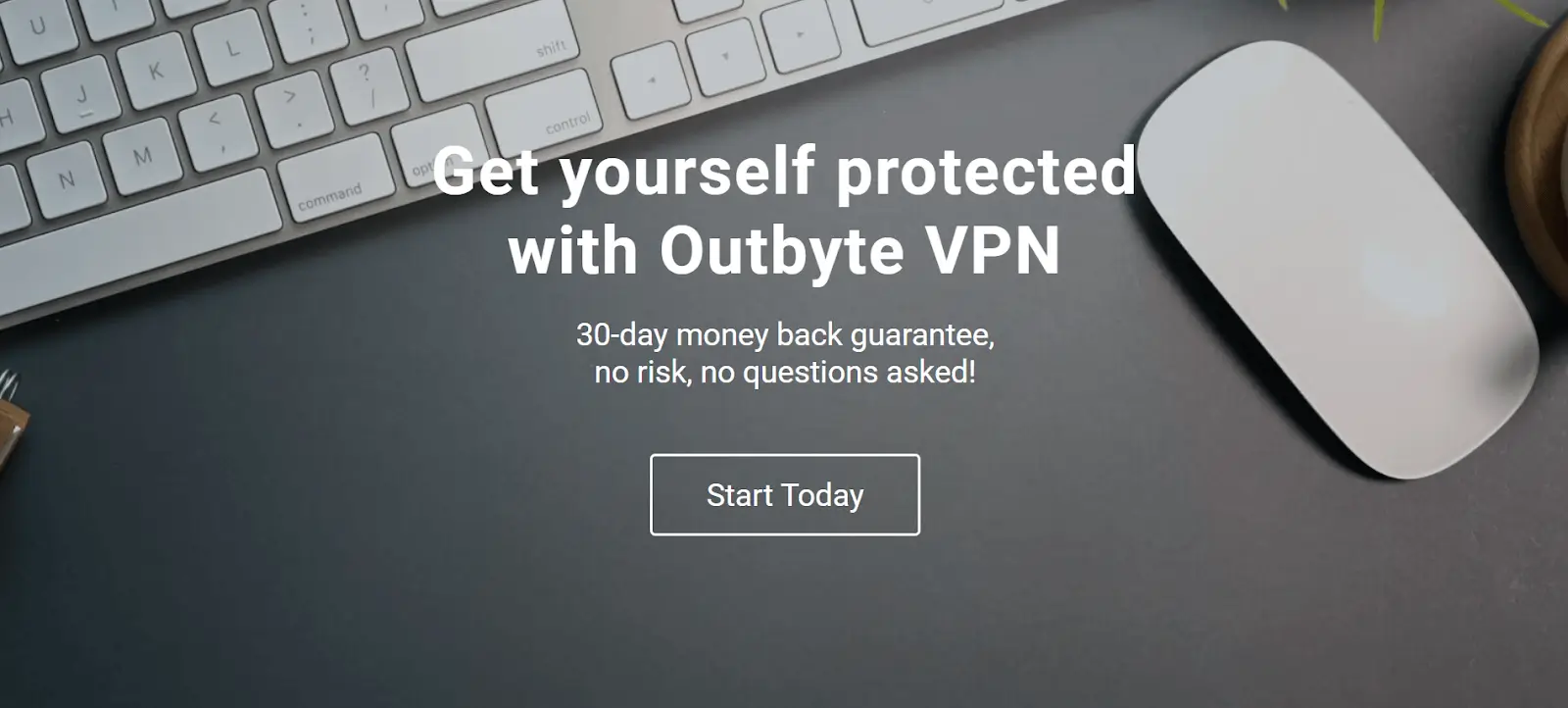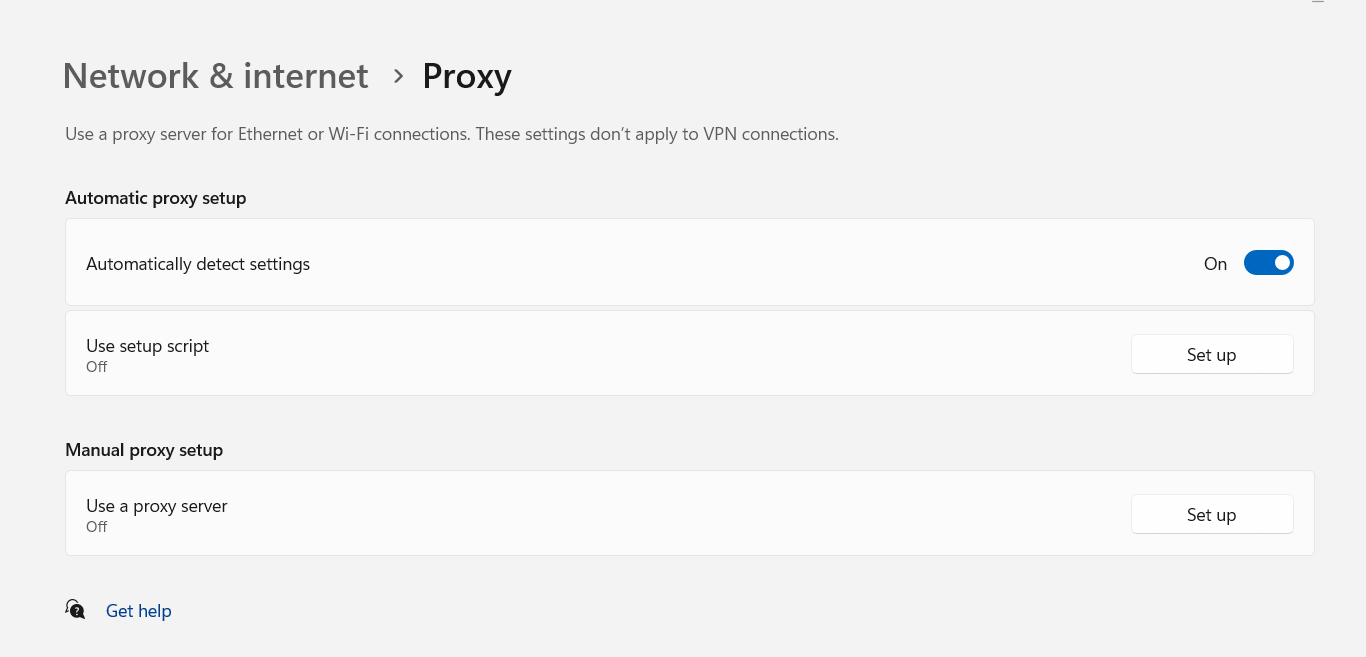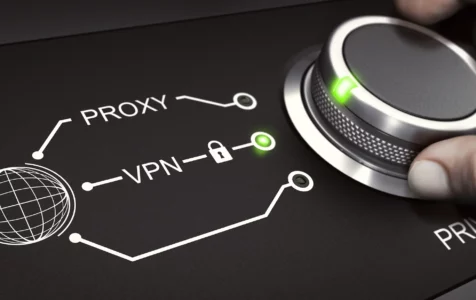When it comes to enhancing privacy and security while browsing the web, VPNs (Virtual Private Networks) and proxies are two popular options. Both of these technologies allow users to mask their IP addresses, encrypt their internet traffic, and bypass geo-restrictions.
However, they differ in terms of their level of security and versatility. In this comparison article, we will explore the key differences between VPN vs proxy, and provide an overview of the benefits and drawbacks of each.
With this information, you’ll be able to make an informed decision about which option is right for you based on your specific needs and requirements.
What is a VPN?
A Virtual Private Network (VPN) is a piece of technology that lets users create a secure connection over the internet. By using a VPN, users can access the internet as if they were connected to a private network, even if they are using a public network such as a Wi-Fi hotspot.
This provides users with a high level of privacy and security while online.
So what does VPN do exactly? VPNs work by encrypting all of the data that is sent between the user’s device and the VPN server. This makes it difficult for anyone who intercepts the data to read it, as it is encrypted and appears as gibberish.
As a result, VPNs are often used by people who are concerned about their privacy when using public Wi-Fi networks or for users who want to access content that is restricted in their geographic location.
There are several different types of VPNs, each designed to meet specific needs. For example, remote access VPNs allow users to access a private network from a remote location.
Site-to-site VPNs, on the other hand, connect two private networks together, allowing users to access resources on one network from the other. VPNs can also be used to securely connect to cloud-based services, such as Amazon Web Services (AWS) or Microsoft Azure, allowing users to access cloud resources as if they were connected to a private network.
Also read: VPN For Beginners: Everything You Need To Know
One of the key benefits of using a VPN is improved security. By encrypting all of the data that is sent between the user’s device and the VPN server, a VPN helps to prevent unauthorized access to sensitive data.
Additionally, a VPN can be used to hide a user’s IP address, making it difficult for websites and online services to track the user’s location. This is particularly useful for users who are concerned about privacy when using public Wi-Fi networks.
Additionally, VPNs can be used to avoid internet censorship, allowing users to access content that is restricted in their geographic location.
Outbyte VPN – Your #1 Choice

Outbyte VPN is a virtual private network service provider that promises to enhance the privacy and security of users’ online activities.
The service allows users to mask their IP addresses, encrypt their internet traffic, and bypass geo-restrictions, making it possible to access content that may be restricted or censored in their own locations.
Outbyte VPN is easy to use and offers a fast and stable connection, making it a good choice for those who value online privacy and security without sacrificing internet speed.
The service also provides:
- User-friendly interface
- 24/7 customer support
- No-log policy
- Competitive pricing
A breakdown of Outbyte VPN’s pricing
| Plan | Pricing | Savings | Features |
| Monthly | $7.99 | – | Full features + 30 day money back guarantee |
| 6 months plan | $6.33 | 20% | Full features + 30 day money back guarantee |
| 1 year plan | $5.00 | 38% | Full features + 30 day money back guarantee |
Pros and Cons of Outbyte VPN
| Pros | Cons |
| Fast and stable connection | May have an impact on internet speed for some users |
| Encrypts all internet traffic (AES-256) | May have limited options for advanced users |
| Hides IP address and online activity | |
| Easy to use interface | |
| 24/7 customer support | |
| No-log policy | |
| Servers in 48 countries and over 80 locations | |
| 30-day money back guarantee policy |
What is Proxy Server?

A proxy’s meaning can be explained as a computer system or an application program that acts as an intermediary between a client and a server. It helps to process requests from clients and then forwards them to the desired servers, performing functions such as caching, security, and even load balancing.
Essentially, a proxy server acts as a go-between for clients and servers to help improve the speed and security of internet connections.
There are several different types of proxy servers, each designed to meet specific needs.
For example, a transparent proxy acts as an intermediary between clients and servers, but doesn’t alter the client’s requests.
An anonymous proxy, on the other hand, conceals the client’s IP address, making it difficult for the server to identify the client’s location.
Finally, a reverse proxy server sits in front of one or more servers and acts as a gateway to the internet. It can be used to improve performance, provide security, and manage network traffic.
One of the most important benefits of using a proxy server is improved security. By acting as a barrier between clients and servers, a proxy server can help to prevent unauthorized access to sensitive data.
In conclusion, a proxy server is a valuable tool for improving the speed and security of internet connections. Whether you’re an individual looking to protect your privacy, or a corporation looking to manage network traffic and secure sensitive data, a proxy server can provide numerous benefits.
So if you’re looking to improve the performance of your internet connection and enhance your online security, you might consider using a proxy server.
VPN vs Proxy: What Are The Differences?
VPN (Virtual Private Network) and proxy services are both technologies that provide users with a secure connection to the internet, but they differ in several key ways.
VPN vs Proxy Server: Level of encryption
VPNs encrypt all of the data that is sent between the user’s device and the VPN server, providing a high level of privacy and security.
Proxy services, on the other hand, typically only encrypt the data that is sent between the user’s device and the proxy server, and may not encrypt the data that is sent between the proxy server and the destination website.
Level of anonymity
VPNs typically provide a higher level of anonymity than proxy services, as they hide the user’s IP address and encrypt all of the data that is sent between the user’s device and the VPN server. This makes it difficult for websites and online services to track the user’s location.
Proxy services, on the other hand, may only conceal the user’s IP address, but do not provide the same level of encryption and privacy as a VPN.
Accessing geo-location restricted content
Additionally, VPNs can be used to access content that is restricted in a user’s geographic location, while proxy services may not be able to bypass internet censorship.
VPNs can also improve the performance of an internet connection, as they can route data through a VPN server located in a region with a faster internet connection.
In conclusion, VPNs and proxy services are both useful tools for improving privacy and security while online, but they differ in their level of encryption, anonymity, and ability to access restricted content.
If you’re looking to enhance your online security and protect your privacy, consider using a VPN, as they provide a higher level of encryption, anonymity, and performance compared to proxy services.
Proxy vs VPN: The Similarities
Here’s a brief explanation of each of the 3 similarities:
Hiding IP address
Both VPNs and proxies can hide the user’s IP address and replace it with the IP of the proxy/VPN server. This makes it difficult for websites and advertisers to track the user’s online activity and location.
Encryption of internet traffic
Both VPNs and proxies can encrypt the user’s internet traffic, making it more difficult for anyone to intercept and read their sensitive data.
Bypassing geo-restrictions and censorship
Both VPNs and proxies can change the user’s virtual location, allowing them to access content that may be restricted or censored in their own location.
These are the main similarities between VPNs and proxies. However, it’s important to note that VPNs are generally considered to be more secure and versatile than proxies due to their ability to encrypt all of the user’s internet traffic and the wider range of server locations available.
Why you should or shouldn’t use a VPN:
| Reasons to use a VPN: | Reasons not to use a VPN: |
| Privacy: A VPN encrypts all of your internet traffic, making it more difficult for anyone to intercept and read your sensitive data. This is especially useful when using public Wi-Fi or other unsecured networks. | Slower internet speed: VPNs can slow down your internet speed, as the encryption process takes time. |
| Security: VPNs can protect you from cyber threats such as hacking, malware, and phishing by encrypting your internet traffic and hiding your IP address. | Limited server locations: Some VPN providers have limited server locations, which may impact your ability to access certain content. |
| Bypassing geo-restrictions: A VPN can change your virtual location, allowing you to access content that may be restricted or censored in your own location. | Cost: VPN services can be expensive, especially if you need to subscribe to a paid service. |
| Anonymity: A VPN can help you maintain your anonymity online by hiding your IP address and encrypting your internet traffic. | Trust issues: Some VPN providers have been known to log user data or sell it to third parties, so it’s important to choose a reputable and trustworthy VPN provider. |
Overall, the use of a VPN depends on your personal needs and preferences. If you are looking to enhance your online privacy and security, a VPN may be a good choice. However, if you are concerned about internet speed or the cost of VPN services, you may want to consider other options.
Why you should or shouldn’t use a proxy:
| Reasons to use a proxy: | Reasons not to use a proxy: |
| Bypassing geo-restrictions: A proxy can change your virtual location, allowing you to access content that may be restricted or censored in your own location. | Limited security: Proxies only encrypt the browser traffic, leaving other types of internet traffic unencrypted. This makes them less secure than VPNs, which encrypt all internet traffic. |
| Improving online privacy: A proxy can hide your IP address, making it more difficult for websites and advertisers to track your online activity and location. | Slower internet speed: Proxies can slow down your internet speed, as the encryption process takes time. |
| Cost: Proxies are often less expensive than VPNs, and some proxy services are even available for free. | Limited server locations: Some proxy providers have limited server locations, which may impact your ability to access certain content. |
| Easy to set up: Proxies are generally easier to set up and use than VPNs, and many web browsers have built-in proxy settings. | Trust issues: Some proxy providers have been known to log user data or sell it to third parties, so it’s important to choose a reputable and trustworthy proxy provider. |
Overall, the use of a proxy depends on your personal needs and preferences. If you are looking to bypass geo-restrictions and improve your online privacy, a proxy may be a good choice.
However, if you are concerned about internet speed or the security of your sensitive data, you may want to consider using a VPN instead.
Wrap up: Proxy Server vs VPN
VPNs (Virtual Private Networks) and proxies are both commonly used to enhance privacy and security while browsing the web. However, they differ in terms of their level of security and versatility.
VPNs are generally considered more secure than proxies as they encrypt all of the user’s internet traffic and offer more server locations to choose from.
Proxies, on the other hand, only encrypt the browser traffic and may have limited server locations.
The choice between a VPN and a proxy depends on the user’s personal needs and preferences.
For those who value online privacy and security, a VPN may be a better choice, while those who are primarily looking to bypass geo-restrictions may prefer a proxy.
Ultimately, both VPNs and proxies have their own advantages and disadvantages, and the decision should be based on the specific needs and requirements of the user.
